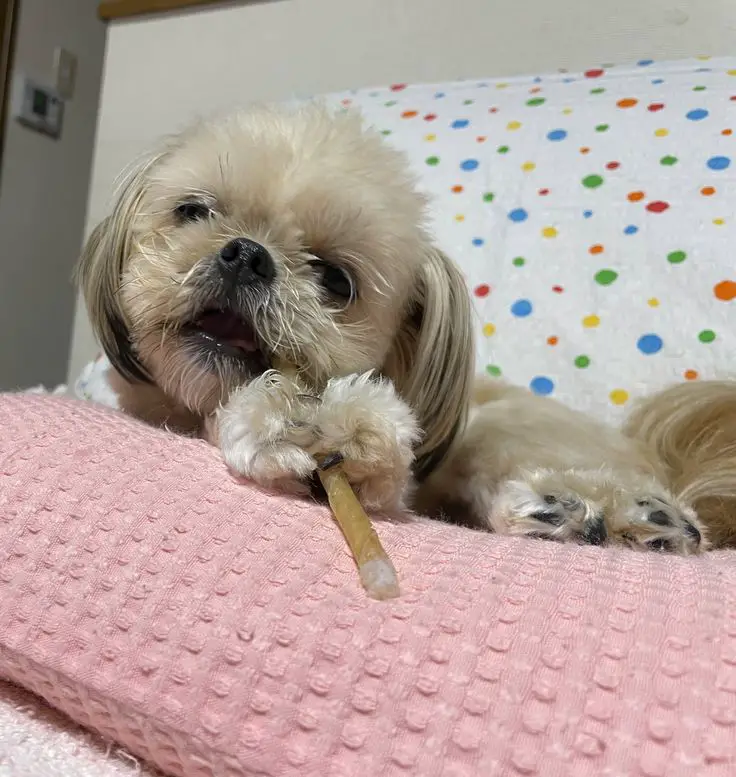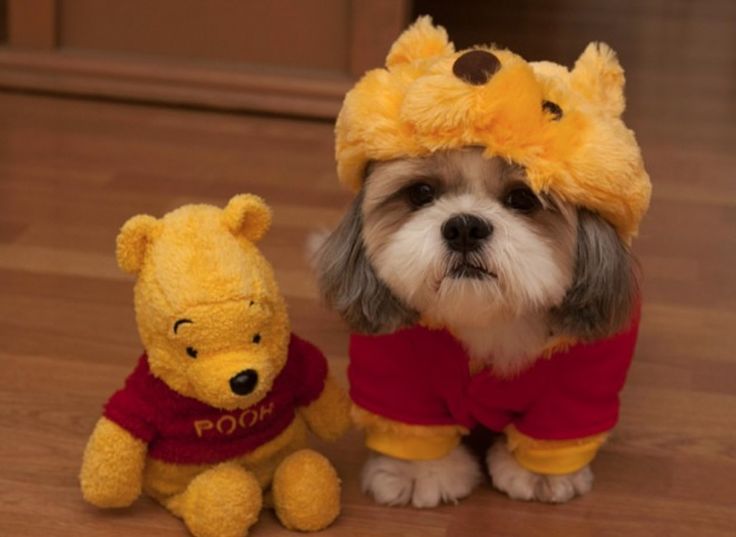
Bringing a Shih Tzu puppy into your home is an exciting and rewarding experience. However, it can also be a significant transition for your new furry friend. Helping your Shih Tzu puppy adjust to their new home is crucial for their well-being and development. This comprehensive guide provides detailed strategies and tips to ensure a smooth transition for your puppy. From preparing your home before their arrival to establishing routines and managing their initial adjustment period, these steps will help create a positive environment for your new puppy.
Preparing Your Home for Your Shih Tzu Puppy

Creating a Safe and Comfortable Space
Before bringing your Shih Tzu puppy home, it’s essential to prepare a safe and comfortable space. Set up a designated area where your puppy can feel secure, such as a cozy crate or a soft dog bed. Ensure the area is free from hazards, such as electrical cords, toxic plants, and small objects that could be swallowed. Provide essential supplies, including food and water bowls, a few toys, and grooming tools. Introduce your puppy to this space gradually to help them become accustomed to it. A well-prepared space will offer comfort and security, helping your puppy settle in more easily.
Puppy-Proofing Your Home

Puppy-proofing your home is an important step in ensuring your Shih Tzu’s safety and comfort. Remove any items that could be harmful, such as chemicals, sharp objects, and small household items that could be chewed or swallowed. Secure trash cans and keep them out of reach to prevent your puppy from getting into potentially dangerous materials. Use baby gates to restrict access to certain areas of your home, such as stairs or rooms with valuable or hazardous items. Check for potential escape routes and ensure doors and windows are securely closed. Creating a safe environment helps prevent accidents and ensures your puppy’s well-being as they adjust to their new home.
Introducing Your Shih Tzu Puppy to Their New Home

The First Day: Making a Positive Impression
The first day with your Shih Tzu puppy is crucial for setting the tone for their adjustment period. Keep the environment calm and quiet to help your puppy feel more at ease. Introduce them to their designated space and allow them to explore at their own pace. Offer plenty of positive reinforcement, such as treats and gentle praise, to create a positive association with their new surroundings. Limit interactions with other pets or visitors during the first few days to prevent overwhelming your puppy. Gradually introduce new elements of their environment to help them adjust more comfortably. A positive first day will set the foundation for a smoother transition into their new home.
Establishing a Routine

Establishing a consistent routine is essential for helping your Shih Tzu puppy feel secure and settled. Set regular times for feeding, potty breaks, and playtime to create a predictable schedule. Consistency helps your puppy understand what to expect and reduces anxiety associated with the transition. Introduce a simple routine for bedtime and waking up to provide structure and comfort. Incorporate training sessions into the routine to reinforce good behavior and create a sense of stability. A well-established routine helps your puppy feel more secure and integrated into their new home.
Bonding with Your Shih Tzu Puppy
Building Trust and Confidence
Building trust and confidence with your Shih Tzu puppy is essential for a successful adjustment period. Spend quality time interacting with your puppy through gentle play, training, and positive reinforcement. Use a calm and reassuring tone to help them feel secure and comfortable. Offer plenty of treats and praise for positive behaviors to reinforce their confidence. Be patient and understanding, as building trust takes time and consistency. Gradually introduce new experiences and environments to help your puppy build confidence and feel more at ease. A strong bond with you will help your puppy adjust more easily to their new home.

Socialization with Family Members
Socializing your Shih Tzu puppy with family members is important for their overall adjustment and well-being. Introduce your puppy to each family member gradually, allowing them to approach and interact at their own pace. Encourage gentle interactions and provide positive reinforcement for good behavior. Monitor interactions with children to ensure they are gentle and respectful. Involve family members in feeding, playtime, and training to create a sense of teamwork and consistency. Proper socialization with family members helps your puppy feel more integrated and secure in their new environment.
Managing Your Shih Tzu Puppy’s Behavior

Addressing Initial Challenges
During the initial adjustment period, your Shih Tzu puppy may exhibit various behaviors as they adapt to their new home. Common challenges include whining, chewing, and house training issues. Address these behaviors with patience and consistency, using positive reinforcement and clear commands. Provide appropriate chew toys to redirect chewing behavior and keep your puppy occupied. Establish a consistent house training routine with regular potty breaks and rewards for successful elimination. Seek professional help if behavioral issues persist or become problematic. Addressing initial challenges effectively helps your puppy adapt more smoothly to their new home.
Encouraging Good Behavior
Encouraging good behavior in your Shih Tzu puppy is crucial for a successful adjustment period. Use positive reinforcement techniques such as treats, praise, and affection to reward desired behaviors. Be consistent with commands and expectations to help your puppy understand what is expected of them. Avoid punishment or negative reinforcement, as this can create fear and anxiety. Redirect undesirable behaviors with appropriate alternatives, such as offering chew toys instead of household items. Encouraging good behavior through positive reinforcement fosters a happy and well-adjusted puppy.
Health and Wellness for Your Shih Tzu Puppy

Scheduling a Veterinary Visit
Scheduling a veterinary visit shortly after bringing your Shih Tzu puppy home is essential for their health and well-being. Schedule an appointment for a comprehensive health check-up to ensure your puppy is healthy and up-to-date on vaccinations. Discuss your puppy’s diet, vaccinations, and any health concerns with your veterinarian. Establish a regular vaccination and wellness schedule to maintain your puppy’s health. Ask for advice on parasite prevention and grooming needs specific to the Shih Tzu breed. A veterinary visit helps ensure your puppy starts their new life on a healthy and positive note.
Maintaining a Balanced Diet

Maintaining a balanced diet is crucial for your Shih Tzu puppy’s growth and development. Provide high-quality puppy food that meets their nutritional needs and is appropriate for their age and size. Follow feeding guidelines provided by your veterinarian or the food manufacturer to ensure proper portion sizes. Avoid feeding table scraps or human food, as this can lead to nutritional imbalances and digestive issues. Monitor your puppy’s weight and growth and make adjustments to their diet as needed. Maintaining a balanced diet supports your puppy’s overall health and development.
Training and Socialization

Basic Training for Your Shih Tzu Puppy
Basic training is an essential part of helping your Shih Tzu puppy adjust to their new home. Start with simple commands such as “sit,” “stay,” and “come,” using positive reinforcement techniques to encourage learning. Keep training sessions short and fun to maintain your puppy’s interest and focus. Use treats and praise to reward successful behavior and reinforce good habits. Be patient and consistent with training, as puppies may take time to learn and respond to commands. Basic training provides a foundation for good behavior and helps your puppy integrate into their new environment.
Socializing with Other Dogs and Pets
Socializing your Shih Tzu puppy with other dogs and pets is important for their development and behavior. Introduce your puppy to other dogs gradually, starting with calm and friendly dogs. Supervise all interactions to ensure positive experiences and prevent aggressive behavior. Encourage socialization in different environments to help your puppy adapt to various situations. Use positive reinforcement to reward good behavior during social interactions. Socializing with other pets helps your puppy become well-adjusted and comfortable in different social settings.
Dealing with Separation Anxiety

Understanding Separation Anxiety
Separation anxiety can be a common issue for Shih Tzu puppies as they adjust to their new home. Recognize the signs of separation anxiety, such as excessive whining, destructive behavior, or reluctance to be alone. Gradually accustom your puppy to being alone by starting with short periods and gradually increasing the duration. Provide interactive toys or treats to keep your puppy occupied during your absence. Establish a consistent routine to provide a sense of security and predictability. Addressing separation anxiety with patience and gradual adjustments helps your puppy feel more comfortable being alone.
Training Techniques to Reduce Separation Anxiety

Training techniques can help reduce separation anxiety and improve your Shih Tzu puppy’s comfort with being alone. Start with short, positive absences and gradually increase the duration as your puppy becomes more comfortable. Use interactive toys or treat-dispensing puzzles to keep your puppy occupied while you’re away. Practice departure and arrival routines to help your puppy understand that leaving and returning are normal parts of the day. Provide plenty of exercise and mental stimulation before leaving to help tire your puppy out. Consistent training techniques help reduce separation anxiety and improve your puppy’s confidence and comfort.
Conclusion
Helping your Shih Tzu puppy adjust to their new home involves careful preparation, positive interactions, and consistent routines. By creating a safe and comfortable environment, establishing a predictable routine, and building trust, you provide a solid foundation for your puppy’s adjustment. Managing behavior issues, ensuring proper health care, and socializing with family members and other pets contribute to a smooth transition and a well-adjusted puppy. Addressing separation anxiety with patience and appropriate training techniques further supports your puppy’s comfort and confidence. With attention to these aspects, you set the stage for a happy and healthy life for your Shih Tzu puppy.


